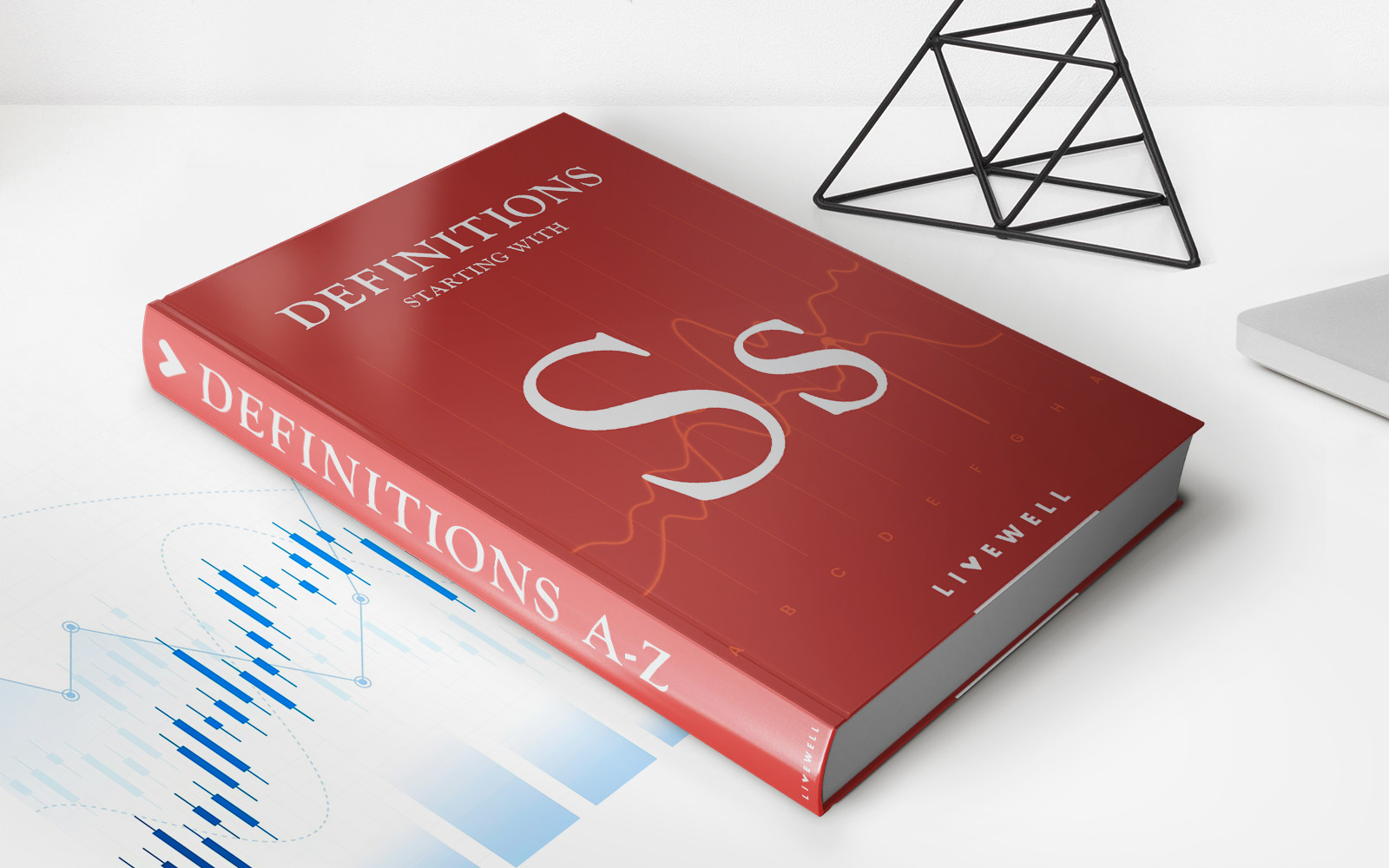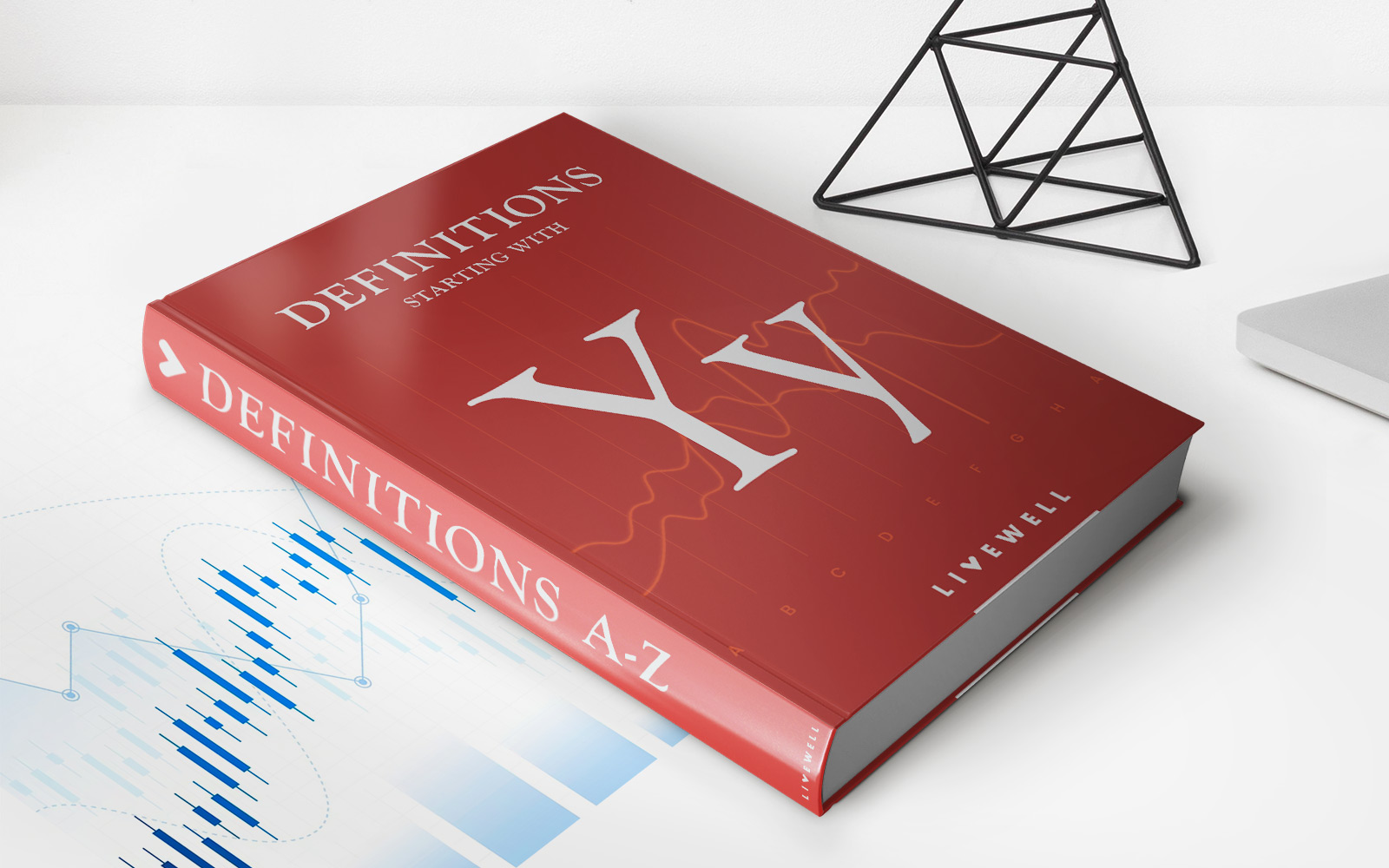Home>Finance>What Happens When You Pay Off Your Student Loans


Finance
What Happens When You Pay Off Your Student Loans
Published: January 20, 2024
Discover the benefits of paying off your student loans and how it can positively impact your personal finances. Achieve financial freedom and take control of your future.
(Many of the links in this article redirect to a specific reviewed product. Your purchase of these products through affiliate links helps to generate commission for LiveWell, at no extra cost. Learn more)
Table of Contents
Introduction
Welcome to the world of student loans, where millions of individuals pursue their dreams of higher education while shouldering the burden of debt. If you’re one of the many who have taken on student loans, you understand the financial implications they can have on your life. However, there may come a time when you finally reach the light at the end of the tunnel and pay off your student loans.
But what happens when you make that final payment? What are the benefits and potential challenges that await you on the other side? In this article, we will explore the various aspects of paying off student loans and delve into the positive impacts it can have on your financial and psychological well-being.
From the moment you took out your student loans, you knew they would have a lasting impact on your financial landscape. Whether you were aware of it or not, those loans shaped your financial decisions and goals for years to come. Paying them off not only signifies a milestone achievement but also opens up new opportunities for your financial future.
As you make that last payment, you may experience a sense of relief and accomplishment. The weight of the loan obligation lifts, and a sense of financial freedom begins to take hold. But what exactly does this mean for your overall financial well-being?
In the following sections, we will explore the tangible and intangible benefits that come with paying off student loans. From the immediate financial relief to the psychological impact of debt freedom, we will discuss how this pivotal moment can shape your financial journey and provide strategies to pay off your loans faster.
Understanding Student Loans
Before discussing the implications of paying off student loans, it’s important to have a clear understanding of what they are and how they work. Student loans are financial tools designed to help individuals fund their education. Whether it’s a federal loan, provided by the government, or a private loan, obtained from a financial institution, these loans allow students to cover the costs of tuition, books, and living expenses.
There are two main types of student loans: federal loans and private loans. Federal loans generally offer more favorable terms and benefits, such as fixed interest rates, income-driven repayment plans, and forgiveness options. Private loans, on the other hand, are offered by banks, credit unions, and other financial institutions and typically have higher interest rates and fewer borrower protections.
It’s important to note that student loans are a form of debt that must be repaid. The amount you borrow, plus interest, must be paid back over a specified period of time, typically after you graduate or leave school. The repayment terms may vary depending on the type of loan and the repayment plan you choose.
During the repayment period, you will make monthly payments towards your loan balance. The amount of your monthly payment will depend on factors such as the total loan amount, the interest rate, and the repayment plan. It’s crucial to make these payments on time to avoid negative consequences, such as late fees or damage to your credit score.
Understanding the intricacies of student loans is crucial in managing your finances and planning for the future. It’s important to be aware of the terms, interest rates, and repayment options associated with your loans. By familiarizing yourself with these details, you can make informed decisions and strategize your approach to paying off your student loans.
The Impact of Paying Off Student Loans
Paying off your student loans can have a significant impact on your financial and personal well-being. It’s a milestone achievement that brings both immediate and long-term benefits. Let’s explore some of the ways in which paying off your student loans can positively impact your life.
1. Reduced Financial Burden: The most obvious benefit of paying off your student loans is the relief from the financial burden they impose. With no more monthly loan payments to make, you free up a significant portion of your income to allocate towards other financial goals, such as saving for emergencies, investing, or purchasing a home.
2. Improved Cash Flow: Paying off your student loans also means having more disposable income at your disposal. With the money that was previously allocated to loan payments, you can now have more flexibility in your budget. This allows you to allocate funds towards other financial priorities or simply enjoy a higher standard of living.
3. Building a Strong Credit History: Successfully paying off your student loans demonstrates financial responsibility and helps to build a positive credit history. Lenders and credit agencies view individuals who have paid off their debts in a favorable light, which can make it easier for you to secure future loans, such as a mortgage or a car loan, at better interest rates.
4. Increased Net Worth: By eliminating your student loan debt, you are effectively increasing your net worth. With no outstanding loans to repay, your assets will exceed your liabilities. This puts you in a stronger financial position and opens up opportunities for wealth accumulation and financial growth.
5. Reduced Stress and Improved Mental Well-being: The burden of student loan debt can take a toll on your mental and emotional well-being. The constant worry and stress associated with debt repayment can impact your overall quality of life. By paying off your student loans, you can experience a sense of relief, reduced stress levels, and an improved state of mind.
It’s important to note that the impact of paying off student loans may vary depending on individual circumstances. Factors such as the amount of debt, interest rates, income levels, and financial goals will all play a role in determining the extent of the impact. Regardless, paying off your student loans is a significant achievement that can positively shape your financial future and overall well-being.
Financial Benefits of Paying Off Student Loans
Paying off your student loans not only provides immediate relief from debt, but it also offers several long-term financial benefits. Let’s explore some of the financial advantages of paying off your student loans.
- Saved Interest: By paying off your student loans early, you can save a significant amount of money on interest payments. The longer you take to repay your loans, the more interest accrues over time. By making extra payments or paying off your loans ahead of schedule, you can reduce the total interest paid, allowing you to keep more money in your pocket.
- Improved Debt-to-Income Ratio: A high amount of student loan debt can negatively affect your debt-to-income ratio, which is a key factor considered by lenders when evaluating your creditworthiness. By paying off your student loans, you lower your debt levels, potentially improving your debt-to-income ratio. This can make it easier for you to qualify for other types of credit, such as car loans or mortgages, with more favorable terms.
- Ability to Save and Invest: Once you’re free from student loan payments, you have the opportunity to redirect those funds towards saving and investing. Whether you choose to build an emergency fund, contribute to a retirement account, or invest in stocks or real estate, you can start building wealth and working towards your long-term financial goals.
- Increased Disposable Income: With your student loans paid off, you’ll have more discretionary income available. This allows you to have more freedom in your budget and make choices that align with your lifestyle and financial goals. You can allocate those funds towards experiences, hobbies, or saving for other major life events, such as buying a home or starting a family.
- Boost to Credit Score: Paying off your student loans can positively affect your credit score. It demonstrates responsible financial behavior, which is a key factor that credit agencies consider when calculating your creditworthiness. A higher credit score can make it easier for you to secure lower interest rates on future loans or credit cards, ultimately saving you money in the long run.
It’s important to note that the financial benefits of paying off student loans will depend on your individual circumstances. Factors such as the interest rates, loan terms, and your overall financial situation will influence the impact. Nonetheless, paying off your student loans opens up new opportunities for financial stability, wealth accumulation, and increased financial freedom.
Psychological Benefits of Paying Off Student Loans
While the financial benefits of paying off student loans are significant, there are also profound psychological advantages to consider. Let’s explore some of the psychological benefits that come with becoming debt-free.
- Relief and Peace of Mind: One of the most immediate psychological benefits of paying off student loans is the sense of relief it brings. The weight of debt can take a toll on your mental well-being, causing stress, anxiety, and sleepless nights. When you make that final payment, a sense of relief and peace of mind washes over you, knowing that you have overcome a significant financial hurdle.
- Increased Self-Confidence: Paying off your student loans is a remarkable achievement that instills a sense of accomplishment and boosts self-confidence. It demonstrates discipline, determination, and the ability to manage your financial responsibilities. This newfound confidence can spill over into other areas of your life and fuel your motivation to tackle future financial goals.
- Reduced Financial Stress: Being debt-free can significantly reduce financial stress and improve overall mental well-being. The constant worry and fear associated with debt payments can take a toll on your emotional health. Once your student loans are paid off, you can experience a sense of freedom from financial burdens, leading to reduced stress levels and a more positive outlook on life.
- Increased Financial Freedom: Paying off your student loans provides a newfound sense of financial freedom. It allows you to have control over your money, rather than allocating a significant portion of your income towards loan payments. With this newfound freedom, you can make choices aligned with your values and priorities, whether it’s pursuing a different career path, starting a business, or pursuing a passion project.
- Improved Quality of Life: When your student loans are paid off, you have more financial resources at your disposal to enhance your quality of life. You can allocate money towards experiences that bring joy and fulfillment, such as travel, hobbies, or investing in personal development. This can lead to a greater sense of happiness, contentment, and overall well-being.
It’s important to acknowledge that the psychological benefits of paying off student loans may vary from person to person. For some, debt freedom may bring profound relief and a sense of empowerment, while for others, it may simply provide a sense of stability and peace of mind. Regardless, paying off your student loans can positively impact your mental health and overall emotional well-being, allowing you to move forward with confidence and a renewed sense of financial freedom.
Strategies for Paying Off Student Loans Faster
Paying off student loans faster than the designated repayment period can save you money on interest and help you achieve debt freedom sooner. Here are some strategies to consider:
- Create a Budget: Establish a budget to track your income and expenses. Identify areas where you can reduce spending and allocate those savings towards your student loan payments. Consider expenses such as dining out, entertainment, or unnecessary subscriptions that you can cut back on.
- Make Extra Payments: Whenever possible, make additional payments towards your student loans. Even small amounts can make a significant impact in the long run. Specify that the extra payment should go towards the principal balance to reduce the overall amount owed.
- Consider Bi-Weekly Payments: Instead of making monthly payments, switch to bi-weekly payments. By doing so, you make 26 half-monthly payments in a year, which is equivalent to 13 full monthly payments. This strategy helps you pay off your loan faster and reduces the total interest paid over time.
- Explore Loan Forgiveness Programs: Investigate whether you qualify for any loan forgiveness or repayment assistance programs. Certain careers, such as teaching, nursing, or public service, offer loan forgiveness options. Research these programs and requirements to see if they align with your professional goals.
- Refinance Your Loans: Consider refinancing your student loans if you have good credit and a steady income. Refinancing can potentially lower your interest rate, saving you money over the life of the loan. However, be sure to carefully review the terms and conditions before refinancing.
- Explore Side Hustles: Consider taking on a side hustle or freelance work to generate additional income. Use the extra earnings to make larger loan payments and accelerate the repayment process. Popular side hustle options include freelancing, tutoring, pet sitting, or selling goods online.
- Negotiate Interest Rates: Contact your loan servicer and inquire about interest rate reductions. Some lenders offer benefits for borrowers who set up automatic payments or make a certain number of on-time payments. Negotiating a lower interest rate can help you pay off your loans faster.
When implementing these strategies, be sure to prioritize your student loan payments over other non-essential expenses. It may require discipline and sacrifices in the short-term, but the long-term benefits are worth it. Remember to stay motivated and celebrate small victories along the way to keep yourself focused on your goal.
Potential Challenges After Paying Off Student Loans
Paying off your student loans is a significant accomplishment, but it’s essential to be aware that there can be potential challenges that arise even after becoming debt-free. Here are some challenges to consider:
- Adjusting to a New Financial Landscape: After paying off your student loans, you may need to adjust to a new financial landscape. With the extra cash flow, it’s crucial to allocate those funds wisely and avoid the temptation to increase your spending. Create a plan to continue saving and investing for the future.
- Loss of Tax Deductibility: Student loan interest payments can provide a tax deduction, reducing your taxable income. However, once your loans are paid off, you lose this deduction. Be prepared for potential changes in your tax situation and plan accordingly.
- Ensuring Responsible Financial Habits: It’s important to maintain responsible financial habits even after paying off your student loans. Continue budgeting, saving, and managing your money wisely to avoid falling back into debt or overspending.
- Identifying New Financial Goals: With your student loans paid off, you need to identify new financial goals. It could be saving for a down payment on a house, investing for retirement, or pursuing further education. Take the time to reassess your financial priorities and set new goals for yourself.
- Adjusting Your Credit History: Paying off your student loans can impact your credit history. While it’s generally positive to have debt paid off, closing the accounts can reduce your overall credit history. Therefore, it’s important to continue using credit responsibly to maintain a healthy credit profile.
- Managing Lifestyle Expectations: After paying off your student loans, you may feel tempted to upgrade your lifestyle. While it’s important to reward yourself, it’s equally important to maintain a balanced approach and not overspend. Continue living within your means and focus on long-term financial security.
- Building an Emergency Fund: Now that you have extra cash flow, it’s crucial to build or strengthen your emergency fund. Without the burden of loan payments, you can redirect those funds towards building a safety net to protect yourself in case of unexpected expenses or job loss.
While these challenges may arise, they are not insurmountable. By staying mindful and proactive with your financial management, you can navigate these obstacles successfully. Use the momentum from paying off your student loans to continue making wise financial decisions and building a strong financial foundation for your future.
Conclusion
Reaching the moment when you pay off your student loans is a significant achievement that brings both immediate and long-term benefits. From the financial relief and improved cash flow to the psychological benefits of reduced stress and increased self-confidence, becoming debt-free opens up new opportunities for your financial future.
By paying off your student loans faster, you can save on interest and achieve debt freedom sooner. Strategies such as creating a budget, making extra payments, refinancing loans, and exploring side hustles can accelerate the repayment process.
However, it’s important to be aware of potential challenges that may arise after paying off your student loans. Adjusting to a new financial landscape, identifying new goals, managing lifestyle expectations, and maintaining responsible financial habits are crucial in maintaining your financial well-being and ensuring long-term success.
Ultimately, paying off your student loans is a watershed moment that allows you to take control of your financial future. Use this opportunity to continue growing and striving towards your financial goals. Celebrate your accomplishment, but also remain focused and disciplined as you embark on the next chapter of your financial journey.
Remember, the path to financial freedom doesn’t end with paying off your student loans – it’s just the beginning.














